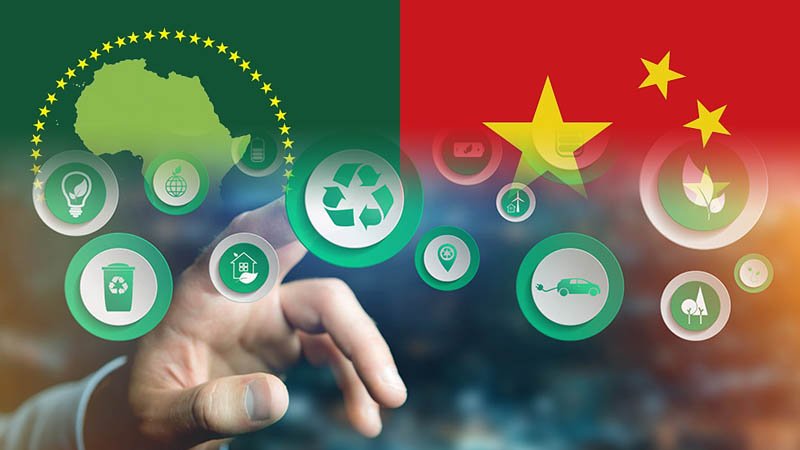The MOU was signed at the SNEC 16th International Photovoltaic Power Generation and Smart Energy Conference in Shanghai, China.

Africa and China have signed a memorandum of understanding (MOU) to boost green manufacturing in Africa. The MOU was signed at the SNEC 16th International Photovoltaic Power Generation and Smart Energy Conference in Shanghai, China. The conference was attended by representatives from governments, businesses, and civil society organizations from Africa and China.
The MOU aims to promote cooperation between Africa and China in the development of green manufacturing in Africa. The two sides will work together to identify opportunities for investment, technology transfer, and capacity building in the green manufacturing sector.
The MOU is a significant step in Africa-China cooperation on the green industrial revolution. It has the potential to help Africa to develop its own renewable energy industries and create jobs in the green economy.
The MOU is also a sign of China’s commitment to supporting Africa’s development. China has pledged to invest $10 billion in green energy projects in Africa over the next five years. This investment will help to accelerate the transition to a low-carbon economy in Africa and create jobs in the green economy.
The Africa-China partnership on green manufacturing is a win-win for both countries. It can help Africa to address climate change, promote economic growth, and create jobs. It is a partnership that has the potential to transform Africa’s energy future.
Africa has abundant renewable energy resources, but it currently imports most of its energy. By developing its own renewable energy industries, Africa can reduce its dependence on imported energy and create jobs in the green economy.
The green manufacturing sector is a key part of the solution to climate change. By investing in green manufacturing, Africa can help to reduce its greenhouse gas emissions and build a more sustainable future.
The green manufacturing sector is a growing sector of the global economy. By investing in green manufacturing, Africa can tap into this growth and create jobs in the green economy.
Africa-China cooperation on green manufacturing can also help to address a number of other challenges facing Africa, such as poverty, unemployment, and environmental degradation. By working together, Africa and China can build a more sustainable and prosperous future for all.
Africa-China green industrial revolution cooperation
Africa and China are two of the world’s most dynamic economies, and they are increasingly working together to address the challenges of climate change and sustainable development. In recent years, there has been a growing focus on Africa-China cooperation on the green industrial revolution.
The green industrial revolution is a global effort to transition to a low-carbon, resource-efficient economy. It is driven by a number of factors, including the need to address climate change, the increasing cost of fossil fuels, and the growing demand for clean energy.
Africa is well-positioned to benefit from the green industrial revolution. The continent has abundant renewable energy resources, including solar, wind, and hydro power. It also has a young and growing population, which provides a large pool of labor for green industries.
China is a global leader in renewable energy technology and manufacturing. It has invested heavily in renewable energy in recent years, and it is now the world’s largest producer of solar panels and wind turbines.
Africa-China cooperation on the green industrial revolution can help to accelerate the transition to a low-carbon economy in Africa. It can also help to create jobs and boost economic growth.
The Africa-China partnership on green manufacturing is a promising initiative that has the potential to transform Africa’s energy future. By working together, Africa and China can build a more sustainable and prosperous future for all.